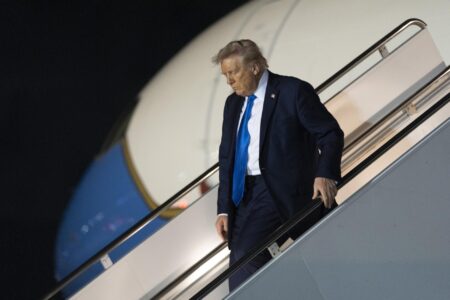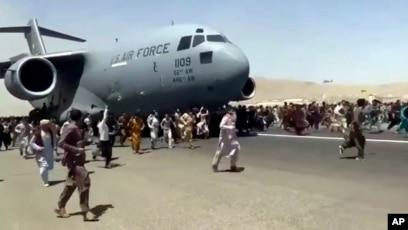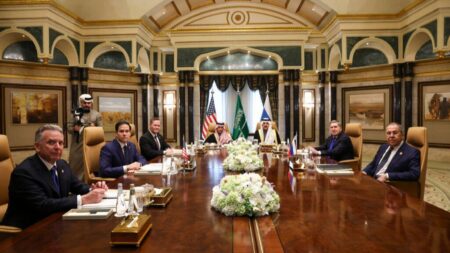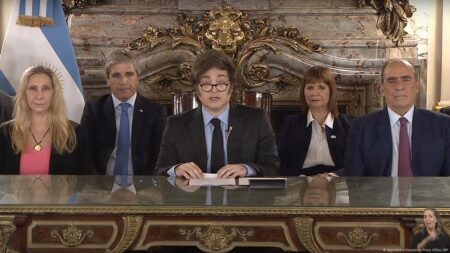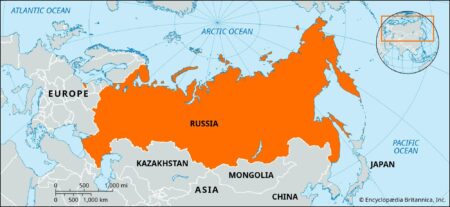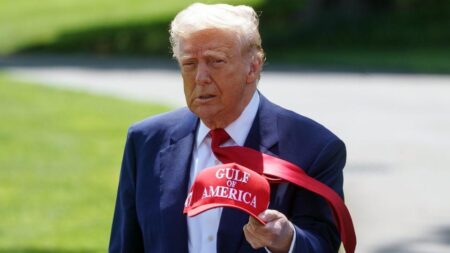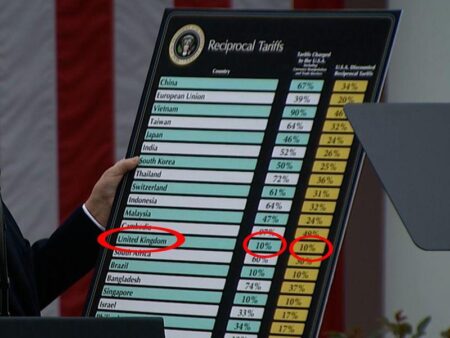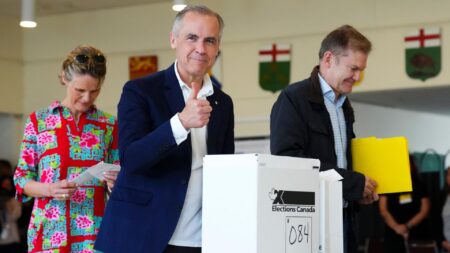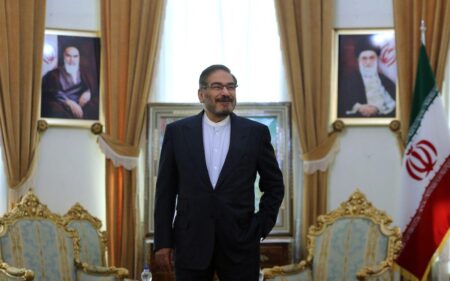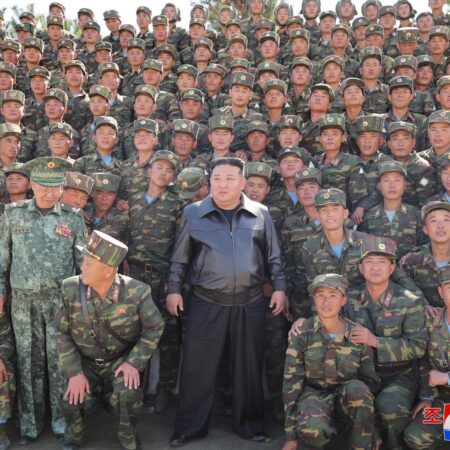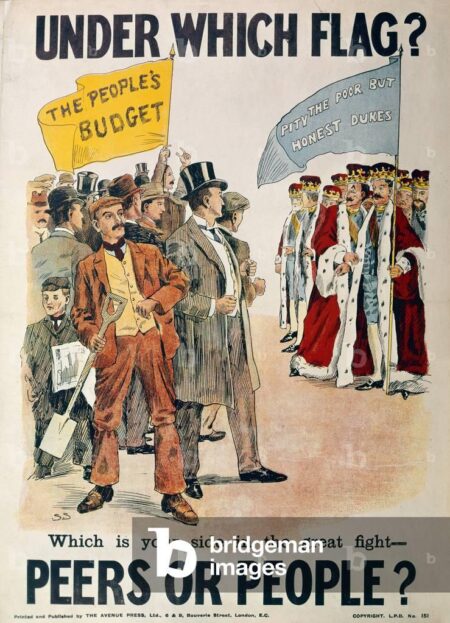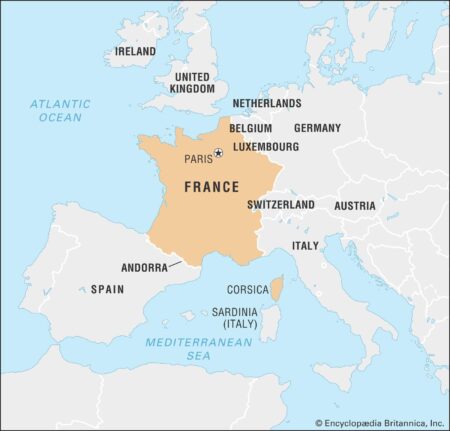Jared Kushner, who was nominated by former President Donald Trump to serve as ambassador to France, has openly confessed to a “serious mistake” from his past. This candid admission sparks intriguing questions about his fitness for the diplomatic position, especially as he faces continued scrutiny over his previous actions.
Browsing: international relations
In a bold and defiant statement, a local politician passionately dismissed allegations of Chinese influence, declaring, “I’m not going anywhere.” This strong response emerges in the wake of troubling claims regarding foreign efforts to manipulate her political agenda, igniting serious concerns about the integrity of our local governance.
The U.S. has officially stepped back from negotiations intended to foster peace between Ukraine and Russia, a decision that sparks worries about rising tensions in the region. Detractors caution that this withdrawal may extend the conflict and obstruct potential diplomatic resolutions.
Top U.S. officials have once again emphasized the urgent need for Ukraine and Russia to come together and prioritize peace negotiations as tensions continue to rise. This renewed call for diplomacy seeks to prevent further conflict and pave the way for stability in the region, encouraging both nations to engage in constructive dialogue.
Argentina’s recent bailout, orchestrated with the help of the IMF, highlights the significant role that political connections play in shaping economic choices. With Trump’s allies applying pressure, the burden of compliance could weigh heavily on everyday Argentinians, sparking crucial discussions about accountability and national sovereignty.
In a shocking turn of events, reports reveal that Russia has resorted to using child suicide bombers in conflict zones. This harrowing tactic not only raises profound ethical questions but also has sparked outrage among international observers, highlighting the urgent and worsening humanitarian crisis.
Pakistan has raised alarms following intelligence reports suggesting that Indian military action could be on the horizon. This warning intensifies the already fraught relations between the two neighboring nations, sparking fears of a possible escalation in the region.
Germany’s new government has garnered enthusiastic support from its coalition partner, setting the stage for a cohesive strategy on crucial domestic and international matters. This endorsement represents a pivotal moment in fostering stability as the nation navigates through ongoing challenges
As Russia grapples with hurdles in its spring offensive, military strategists are optimistic that the arrival of warmer weather will invigorate their operations. With ground conditions steadily improving, officials are gearing up for a surge in maneuvers, even as they navigate through ongoing challenges on the battlefield.
The U.S. is calling on Argentine President Javier Milei to reconsider the currency swap deal with China, raising alarms about Beijing’s growing footprint in Latin America. Experts caution that this move could further complicate Argentina’s already fragile economy, which is grappling with significant financial hurdles.
In the wake of a tragic attack in Kashmir, the already fraught relationship between India and Pakistan is reaching new heights of tension. As the situation unfolds, there are growing calls for urgent dialogue to prevent further escalation. Experts caution that without immediate action towards peace and reconciliation, this incident could plunge the region into deeper instability.
Warren Stephens has been officially appointed as the UK Ambassador, marking a significant milestone in the enhancement of diplomatic relations. With a wealth of experience in international affairs, Stephens is set to foster deeper collaboration on pressing global challenges.
Amid the rising trade tensions sparked by Trump-era tariffs, Mark Carney passionately champions a united G7 strategy to combat protectionist measures. His urgent plea for collective action highlights the critical importance of safeguarding free trade and ensuring global economic stability.
Houston mogul Tilman Fertitta has been appointed as the U.S. ambassador to Italy, marking a remarkable chapter in his illustrious career that bridges the worlds of business and diplomacy. Renowned for his vast restaurant empire and dynamic sports ventures, Fertitta’s new role is set to enhance the ties between the U.S. and Italy, fostering collaboration and cultural exchange.
In the wake of his recent election triumph in Canada, Finance Minister Mark Carney is stepping into the spotlight as a dynamic global leader, ready to take on the policies of former President Trump. With a vision for stronger international collaboration, Carney is determined to tackle urgent economic challenges head-on.
Iran’s leading security official has landed in Brazil for pivotal BRICS discussions, signaling a major leap in Tehran’s diplomatic outreach to key emerging economies. These talks are set to enhance cooperation and tackle pressing regional security issues head-on.
In a startling revelation from South Korean officials, it has been reported that around 4,700 North Korean soldiers have either lost their lives or sustained injuries while battling alongside Russian forces in Ukraine. This alarming statistic brings to light serious concerns regarding North Korea’s deepening military engagement in the ongoing conflict.
Following the Liberal Party’s triumphant win in Canada, experts are buzzing with insights about its global ramifications. Analysts believe this victory is a powerful endorsement of progressive policies and a renewed focus on climate action, solidifying Canada’s position as a beacon of leadership in international diplomacy and collaboration.
On April 28, 2025, NATO marked a momentous occasion—the 70th anniversary of Germany’s membership—with a heartfelt ceremony that underscored the nation’s vital contribution to transatlantic security. Dignitaries from around the globe came together to celebrate significant milestones and renew their unwavering commitment to collective defense.
France has raised alarms about a notorious hacking group with ties to Russia, which is reportedly trying to breach the Paris Olympics and several key French agencies. With the prestigious event on the horizon, authorities are ramping up their defenses, underscoring the urgent need to safeguard critical infrastructure.

